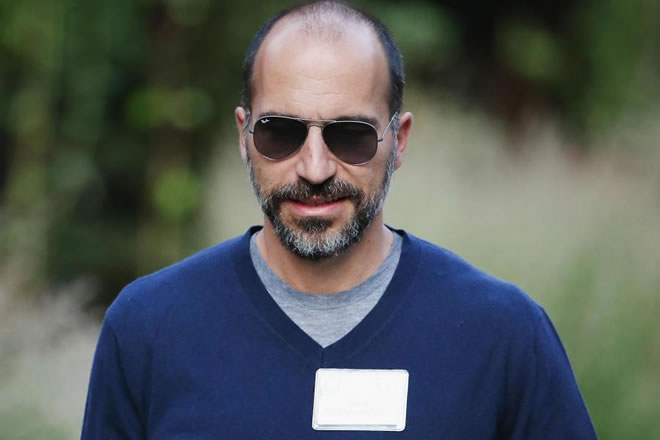
Editorial
Friday, September 29, 2017

Dara Khosrowshahi said he accepted Uber had to make changes to survive Getty
Imagine if Paris, rather than London, had banned Uber last week. The decision would have been greeted with derision on this side of the Channel. “There go the French again,” we would have said with self-satisfaction, “surrendering to vested interests, damaging their economy and cutting themselves off from the future”.
But today Parisians, like New Yorkers, Romans and Mancunians, have no fear that they will lose the cheap, convenient car rides that modern technology has made available from smartphones. Instead, it is the 3.5 million Londoners who use Uber who face that fate in just a few weeks’ time, thanks to the arbitrary decision of Transport for London, under the chairmanship of Sadiq Khan.
Sure, the better-off will simply switch to the different, more upmarket service that black cabs provide — and look how Uber has forced that service to improve, with new taxi-hailing apps and the option of credit card payments now mandatory. But many people can’t afford the higher black cab fares, and many more — like women travelling home late at night, parents wanting to make sure their children have reliable rides or those who can’t persuade a cabbie to take them to their suburban home — will have to use much longer forms of journey home that feel less safe.
Weak governance
Then there are the 40,000 drivers in the capital who have come to rely on the work that Uber provides. Overnight, their livelihoods have been put in jeopardy. Incomes that they and their families had come to rely on look like disappearing. If one 10th that number had faced losing their jobs at a car plant or a steel mill, then their fate would have led our broadcast news bulletins for weeks. But because Uber drivers are dispersed, often poor and usually immigrants, they are faceless and voiceless. No trade union cares about them.
None of this is a defence of Uber the company —its corporate governance has been weak, its checks on drivers can be improved, and its co-operation with police should be better. That is why Uber has a new CEO. But all those things could have been demanded from Uber as a condition for renewing its licence rather than as an excuse for taking it away.
And this paper would welcome more competition for Uber, from the likes of rival apps such as Lyft — and from black cabs themselves. Some of the requirements placed on black cabs are antiquated and unfair, and should be removed (in the age of sat-nav, do we really need someone to spend four years of their life learning the knowledge so that they know by heart the route from the Royal Watercolour Society to West Hampstead Library?)
Nor is it to say that we don’t need improvements to the employment status of workers in the new gig economy so they have access to pensions and sick and maternity pay; but that is for Parliament to guarantee. A generation ago, the Labour Party would have put itself on the side of consumers and embraced new technology. As a result, it owned the future and won office. Today, its conference in Brighton reminds us just how much the hard-Left is in control. The interests of the users of services, whether Uber customers or NHS patients, is subordinate to the imagined interests of unionised workforces. Shutting out the future is the new agenda.
That is why the Mayor of London, Sadiq Khan, will receive such a warm reception there. It’s also why we shouldn’t assume —as many do — that Uber will get its licence renewed after a brief negotiation. Mr Khan has taken that licence away and to give it back, even with tough conditions, will be a hard sell to the comrades and cabbies. It is hard to escape the conclusion that he has put his own journey to the top of the Labour Party ahead of the journeys of millions of citizens he was elected to represent. London’s future clearly comes second to his own.